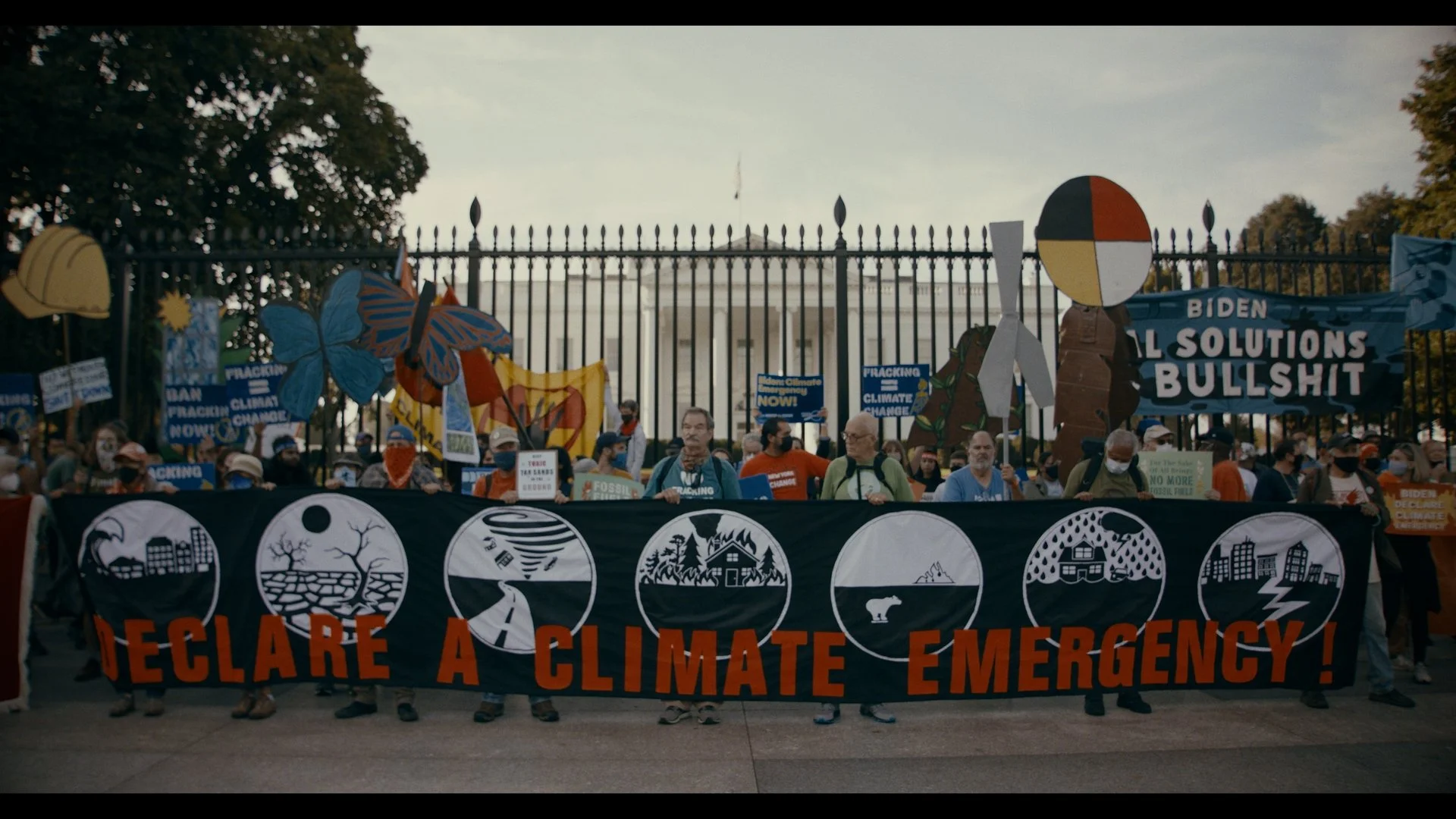In the last couple of months, Congress has been lit ablaze over the battle for our infrastructure— a deal that brokers the opportunity to meaningfully address climate change through smart, impactful long-term investments. Over 10 years, Congress would divest from fossil fuels in favor of cheaper, renewable green energy and build up the nation’s infrastructure to support a more stable electric grid, improve public transit, incentivize electric vehicles, ban loopholes like fracking, “net emissions” and put an end to offshore drilling. It’s not a change that would happen overnight, but it’s one that would secure us a longer less conflict-ridden future as the world scrambles for resources like water, food, and livable shelter.
We in the US are fairly protected from the implications of climate change— that is, if you’re not poor or living on Indigenous reservations where toxic spills, poisoned water, cancerous air are built into the fabric of infrastructure. Even then, our countryside in recent history has witnessed historic floods, droughts, and wildfires as well as devastating storms wringing in death tolls in the thousands, billions in property damage, and community trauma. But in places like Central America, changes in the patterns of weather are driving some places into famine.
Yet, the US and many other countries that follow in our path have adopted a ‘business as usual’ approach to climate disaster at our doorsteps. Just one day after the climate summit COP 26, President Biden leased the largest amount of contracts to offshore drilling in recent history. Senators like Joe Manchin are inviting Exxon executives to write US climate legislation despite their public history of actively denying climate change in pursuit of short-term profit.
Activists pursue Joe Manchin coming off of his yacht in Washington D.C before an energy subcommittee meeting with Exxon Mobil.
It’s the same business as usual approach our country is taking in keeping healthcare behind a paywall despite the devastation a pandemic has caused people— notably the working poor—where healthcare is out of reach. Not to mention the number one reason for bankruptcy in America is medical debt, but that’s for a different article.
OIn my opinion, our solutions have to transcend green energy; we have to look at what's fueling our consumption. Year after year some of the largest public companies are incentivized to cut costs and make decisions, no matter how bad, that will lead to exponential profit growth. Despite record gains on Wall St in the last decade, worker wages have remained fairly stagnant— only a handful of people feel the return of their labor. But every year companies raise the ceiling a little higher and pump out artificial demand for material goods we don’t really need. Overproduction and overconsumption are also driving climate pressures and that’s a cultural and economic issue we deeply need to reflect on.
Not only that, fossil fuel-dependent supply lines and infrastructure lead to inflationary pressures every time oil and gas companies decide to hike rates, passing on costs to consumers which inequitably hurt poorer communities. Moreover, inflation only becomes a talking point when it comes to legislation that supports poor folks— nobody batted an eye when earlier this year we passed a 768 billion dollar defense spending bill.
Consider this a reminder that if we don’t meaningfully address climate change literally nothing matters.
Your stocks don’t matter, your career doesn’t matter, that home you want to buy doesn’t matter, my future, your future, your kids future, your parents future, the futures of people in threatened communities— all of that is what we are wagering when we continue to pander to executives chasing short term profit. Most of those making decisions on our climate won’t be around to see the consequences.
But hey, if none of that moved you, beyond the existential reasons to support a green energy transformation— you won’t have to pay sky-high gas prices.


